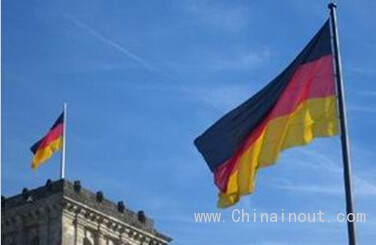為了解決在法國肆虐的歐洲經(jīng)濟問題,,德國—至少是德國總理默克爾,,制定了經(jīng)濟緊縮計劃。但是德國并沒有居功自傲,,他們更傾向于將自身經(jīng)濟看作一匹最強壯的馬,,來拉動歐元區(qū)走出困境。因此,,這種令人驚訝的上升也在這個月帶來了擔憂:從第一季度到第二季度,,真實輸出縮減調整到0.2%,制造業(yè)調整為1%,。
(
瀏覽全球資訊請關注中國進出口網(wǎng))
說明中有一部分是統(tǒng)計結果,。暖冬的原因使得統(tǒng)計結果與第一季度同期相比有了更多的解釋。并且由于地域政治危機,,特別在烏克蘭,,產(chǎn)生了更大的影響。德國對俄出口直線下降,,因為給定了時間減少了制裁,,下降比預期中來的更猛烈。而俄羅斯僅占有德國貿(mào)易總額的3%,,所以在高出口的地方更容易出現(xiàn)損失,。更糟糕的是,俄羅斯持續(xù)上漲的不確定性,,導致了投資經(jīng)理人的投資延誤,,被廣泛視為基準的德國IFO商業(yè)景氣指數(shù)在八月份也出現(xiàn)下降情況。
除卻這些新的風險,,德國經(jīng)濟基礎看起來依然強勁,。財政預算趨于收支平衡,,失業(yè)率也處在低水平范圍:事實上,勞動力短缺問題日益嚴重,。根據(jù)科隆經(jīng)濟研究所的報告,,低失業(yè)率適用于那些負責照顧老人的大企業(yè),特別是那些在德國境內十分著名的崗位,,比如助聽器聲學,。
德國對于歐元區(qū)恢復的最大貢獻在于讓工資上漲。無論他們是否在這樣做,,幾個月之內情勢也不會明朗,,因為德國的相關統(tǒng)計數(shù)據(jù)比大部分統(tǒng)計慢很多,不過人們對此毫無異議,。七月,,在德國眾所周知的鷹派中央銀行——德意志聯(lián)邦銀行的行長延斯·魏德曼要求加薪,引起了轟動,。他要求的薪資平均上漲幅度為3%,。一個新的最低工資標準也可以推動工資上漲。這項在2015年生效的新規(guī)定將每小時工資定位8.5英鎊,,超過了平均水平的40%,。
柏林洪堡大學的經(jīng)濟學者邁克爾·布達說德國提高薪金水平代表“休謨自然體制運轉的,是歐元不是黃金”,。他的意思是,,在休謨體制—由大衛(wèi)·休謨在18世紀首次提出—下運轉的金本位國家調整經(jīng)濟失衡應該通過提高物價和薪酬,而不是貨幣的升值或貶值,。布達先生也表示,,歐元區(qū)正在向它的18個成員國強加金本體制。物價和薪酬在一些高危國家有所下降,。德國可以通過提高薪酬來幫助他們—如果他們愿意接受這個提案,;否則,通貨緊縮帶來的一系列危機將籠罩整個歐元區(qū),。
在過去十年實行的薪酬限制,,讓德國公司確信它們還有轉圜的余地。正如十年前被全歐洲所知的“風險家”,,德國自2003年開始經(jīng)歷了一系列復雜的勞動力市場改革,。聯(lián)盟向來是逆來順受,經(jīng)常在通貨膨脹和生產(chǎn)率提高的情況下接受工資上漲的提議,。柏林經(jīng)濟研究協(xié)會的卡爾·雪瑞爾克說,,國內曾經(jīng)發(fā)生的一場貨幣貶值實際上讓出口變得更有競爭力。工人們喪失消費能力也使消費低迷,二者結合帶來了巨大的貿(mào)易順差,。
德國提高薪資和消費,,如果人們接受,將會在一定程度上扭轉現(xiàn)在的頹勢,,此舉將會減小貿(mào)易順差,,這倒是歐盟和美國都希望出現(xiàn)的情況。在德國政府近年來缺乏的領域由政府和公司合作,,不斷上升的投資成為了國內僅剩的另一個杠桿,。但由于投資強調信任,俄羅斯又一次成為了反面教材,。
(
瀏覽全球資訊請關注中國進出口網(wǎng))
BLAMING Germany—or at least the austerity prescribed for the euro zone by Chancellor Angela Merkel—for Europe's ills may be popular in France. But Germans are inclined, not without some pride, to see their economy as the strongest horse to pull the euro zone out of its misery. Hence the fear caused by a surprising updat this month: real output shrank by a seasonally adjusted 0.2% in the second quarter from the first, and manufacturing by 1%.

Part of the explanation was statistical. Thanks to a mild winter, there was more construction than usual in the first quarter. But geopolitical crises, especially in Ukraine, had a bigger impact. German exports to Russia have plummeted. Given the timing, the dro was due less to sanctions already imposed than to expectations of more to come. Russia accounts for only 3% of Germany's total trade, so the losses were easily made up in higher exports elsewher. More devastating is the rising uncertainty over Russia that is causing managers to delay investment. Germany's Ifo business-climate index, a widely watched benchmark, fell in August.
Aside from such new risks, however, the underlying German economy still looks strong. The federal budget is close to balance. Unemployment remains low: indeed, labour shortages are an increasing problem. This applies to large businesses such as care for the elderly, but especially to many of the niches for which Germany is famous, such as hearing-aid acoustics, according to the Cologne Institute for Economic Research.
Germany's best contribution to recovery in the euro zone would be to let wages rise. Whether they are already doing so will not become clear for months, because Germany reports the relevant statistics more slowly than most. But the willingness is there. In July Jens Weidmann, the president of the Bundesbank, Germany's notoriously hawkish central bank, caused a sensation by calling for pay rises of 3% on average. A new minimum wage should also nudge wages up. It will take effect in 2015 at 8.50 an hour, more than 40% of the median wage.
Rising German wages would represent the “natural Hume mechanism at work, but with euros instead of gold, ” says Michael Burda, an economist at Berlin's Humboldt University. By this he means the process first described by David Hume in the 18th century, under which countries on the gold standard adjusted to imbalances not by letting currencies appreciate or depreciate but through rising or falling prices and wages. In effect, Mr Burda says, the euro zone has imposed a gold standard on its 18 members. Prices and wages are falling in several crisis countries. Germany could help by letting its wages rise—if it is willing to accommodate this. If not, there is a serious risk that deflation could take hold across the euro zone as a whole.
German firms certainly have plenty of leeway, after practising wage restraint for the past decade. Known as the sick man of Europe ten years ago, Germany underwent a set of wrenching labour-market reforms starting in 2003. unios co-operated meekly, often accepting wage rises below inflation and productivity growth. In effect, this was an internal devaluation that made exports more competitive, especially in sectors such as machines and chemicals, according to Karl Brenke at the German Institute for Economic Research in Berlin. The forgone spending power by workers also depressed consumption. The combination led to huge trade surpluses.
Rising wages and consumption in Germany, if they are accepted, would partially reverse this trend. That would lead to smaller trade surpluses, as both the European unio and the Americans are demanding. The only other domestic lever is increased investment, both by the government and by companies, an area wher Germany has been stingy in recent years. But because investing requires confidence, Russia is again proving a damper.












